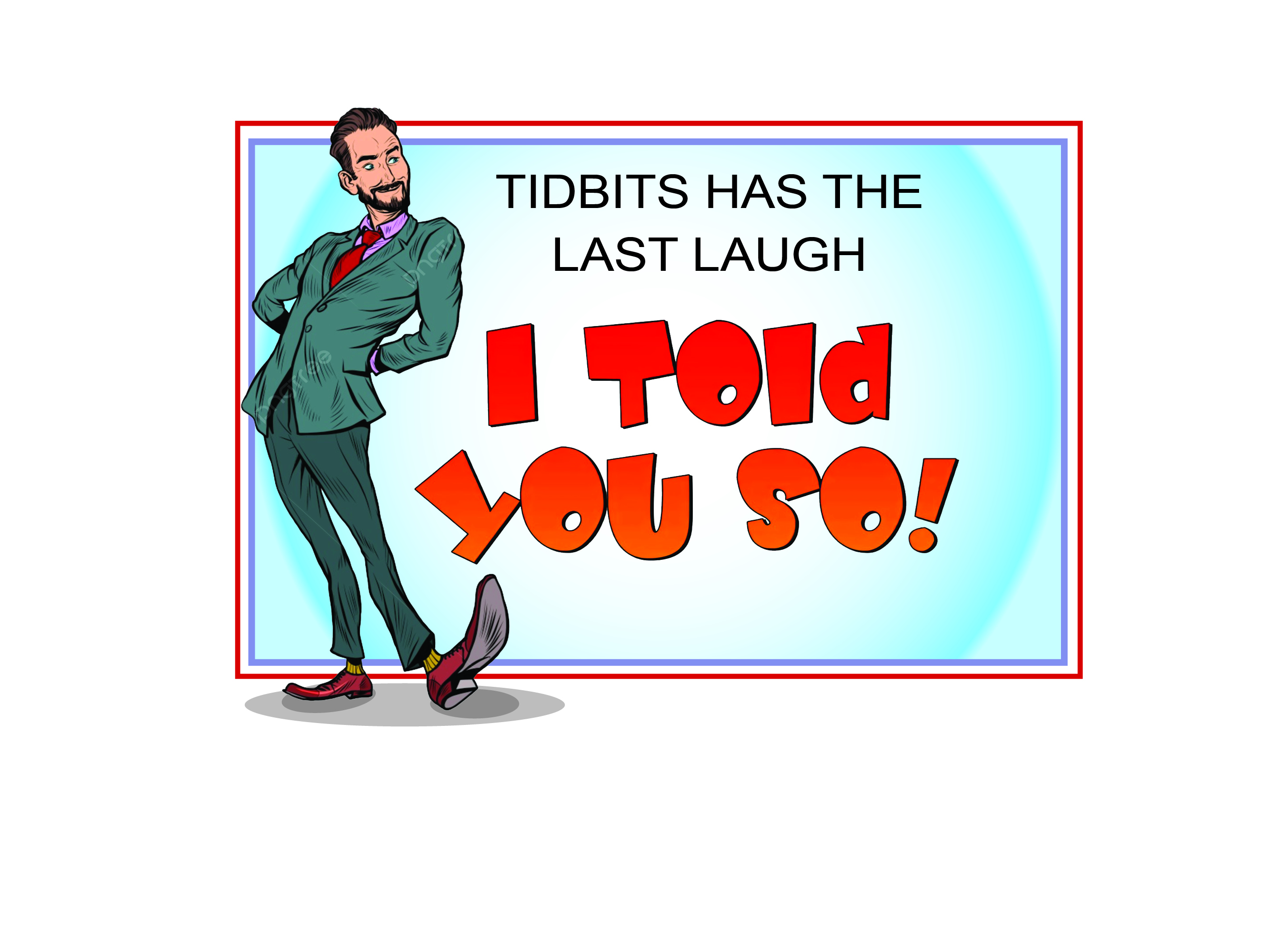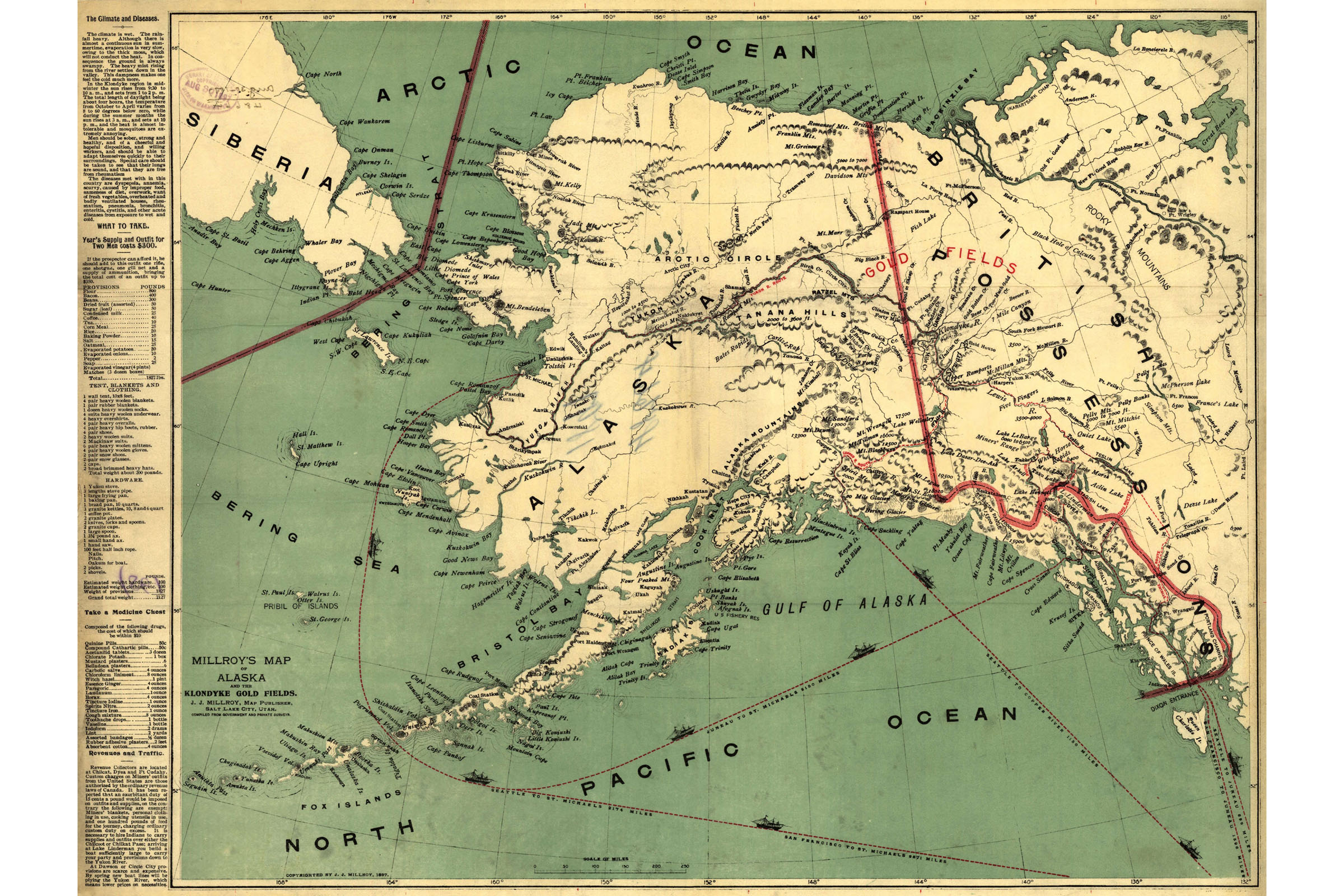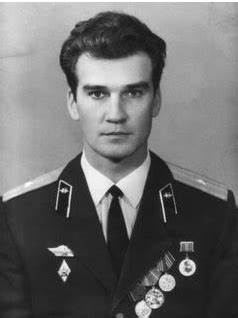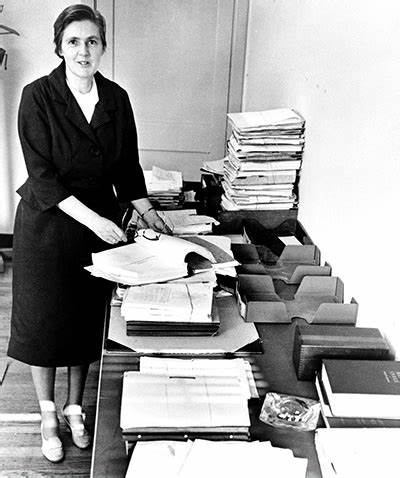
9 minute read
I Told You So
Throughout the annals of history there have always been determined individuals who became so enamored with the lofty goals and brilliance of their ideas that they ignore the warning flags raised by others. But in some cases, it's also turned out that the flag wavers were the ones who were wrong. This week Tidbits has a few such gems for you that have concluded by giving the accused individual the right to say, "I told you so!"
CATASTROPHIC CONSEQUENCES
• Admiral Isoroku Yamamoto was the Imperial Japanese Navy Marshal Admiral and the Combined Fleet commander-in-chief during World War II. He was in charge of naval operations in the Pacific theater when his superiors informed him he would be heading up a surprise attack on the U.S. Naval base at Pearl Harbor, Hawaii. The success of the sneak attack, he was told, was certain to cripple the entire U.S. warship fleet and open the way for Japan's complete victory and control of the Pacific theater.

• Yamamoto strongly cautioned his high command against the plan, saying they would likely only succeed in “waking a sleeping giant,” and they would ultimately pay a great price for their aggression. He estimated that even if the attack was successful, it would buy Japan only about 18 months of superiority. His advice was ignored.
• After the Pearl Harbor attack, the U.S. immediately declared war against Japan and the battle for the Pacific was underway. Regarded as the turning point of the war, the crucial Battle of Midway was indeed about 18 months after Pearl Harbor. Yamamoto lost face after this defeat. American forces shot down his plane on April 14, 1943, and he never lived to see his prediction of Japan’s disgrace come true with their ultimate surrender after U.S. atom bombs decimated Hiroshima and Nagasaki.
IT'S NOT A GERM
• In the early 1900s, Dr. Joseph Goldberger worked for the Public Health Service in Georgia. He was asked to find out what caused a disease called pellagra. At the time, it was thought the illness was contagious, and spread through contaminated water. Goldberger noticed that prisoners came down with pellagra but not guards, sailors but not captains, orphans but not nuns. He suspected it was the diet.

• He proved his theory by experimenting with the diets of prisoners and orphans. Those who received daily portions of meat, milk, and egg yolk never got sick, while those fed mostly carbs did. He could deliberately cause pellagra by simply withholding these items from their diets, and just as easily cure it. Long before vitamins were discovered, he was ridiculed by the medical community for his theory.
• Goldberger went one step further. He deliberately tried to infect himself, his wife, and a selection of test subjects with pellagra by swabbing bodily fluids and secretions from sick people and transferring them to the healthy. Yet he was never able to find a single germ that could pass the illness from one person to another. Eight years after Goldberger died, the B vitamin called niacin was isolated and named, and the pellagra sickness was irradicated.


PROBLEM PUMPS
• Dr. Max Joseph Von Pettenkofer was a Bavarian chemist who was certain that the epidemic of cholera was caused by being poor, dirty, and breathing bad air. He mocked doctors Robert Koch and John Snow, who insisted cholera was caused by bacteria spread through contaminated water.
• To prove his point, in 1892 Von Pettenkofer drank water teeming with cholera germs, convinced it was safe. To his dismay, he immediately came down with cholera, but recovered.

• John Snow then stopped a serious cholera epidemic in London by removing the pump handle from a contaminated public well, proving cholera is indeed spread through bad water. Other populated areas soon followed suit and the epidemic was eliminated.

NORTHERN NONSENSE
• In 1897, many people thought Secretary of State William Seward was plain stupid to buy the land of Alaska from Russia for a hefty $7.2 million, at the cost of two cents an acre. This is equal to $129 million or 36 cents per acre today. The entire region was thought to be a useless wasteland and a foolish purchase.

• But scoffers changed their tune with the Klondike gold rush in 1896, followed by the discovery of other rich resources in its soil, including oil, and the realization of its high value as a strategic military defense base.

DECISIVE DILEMMA
• Lieutenant Colonel Stanislav Petrov was on duty at the Soviet Air Defense Forces in 1983 when a nuclear early-warning system alert signaled that the U.S. had launched five missiles toward Russia. It was his duty to immediately rush the warning to the supreme command, authorizing them to quickly retaliate by returning the deadly nuclear exchange.

• But he hesitated. The system was brand new and subject to errors. He had been told that any nuclear war would start with a heavy blitz, not just five missiles. The bombs did not show up on his radar. Should he send the warning anyway as required? The fate of two entire nations literally rested in the tip of his finger on the button.
• In a decisive moment, he rethought the threat and decided instead to wait. heading off what would have become a disastrous all-out nuclear war.

Although he was reprimanded for failing to follow protocol, an investigation later proved that he had been correct in his assumption that the erroneous report was due to a malfunction. Stanislav is lauded today as "the man who saved the world."
DRUG DERAILMENT
• In 1960, Frances Kelsey was a pharmacologist serving as a medical reviewer at the U.S. Food and Drug Administration (FDA). When an application for a new drug called thalidomide crossed her desk, she refused to approve it. She did not believe there had been enough clinical trials to prove that the new drug was safe.

• Thalidomide was being used widely in 20 other nations, routinely prescribed to pregnant women to control morning sickness and to help them sleep. The manufacturer insisted it was as safe as aspirin.
• Despite enormous pressure from the drug manufacturer and its representatives, Kelsey refused to rubber-stamp the drug. Her staunch refusal prevented the drug from being distributed throughout the U.S. Meanwhile, in the other nations where the drug was commonly prescribed, doctors reported a wave of deformed babies born with missing limbs due to the damaging side effects of thalidomide.

• Ultimtely, the drug was universally banned in 1962 and dubbed as "the biggest anthropogenic medical disaster ever.”
FUTURE FLICKS
• Noted movie reviewer Roger Ebert, made this prediction for the future back in 1987: “We will one day have high-definition, widescreen television sets and a push-button dialing system to order the movie you want at the time you want it. You’ll not go to a video store but instead order a movie on demand and then pay for it. Videocassette tapes as we know them now will be obsolete both for showing prerecorded movies and for recording movies.

• “Today seventy-five percent of the gross from a typical art film in America comes from as few as only six different theaters in six different cities. Ninety percent of the American motion-picture marketplace never shows art films. With this revolution in delivery and distribution, anyone, in any size town or hamlet, will see the movies he or she wants to see.” Ebert was right.

COMMUNICATION CALCULATION
• Almost 100 years ago, inventor Nikola Tesla was quoted in “Colliers Magazine” in 1926 with this prediction for the future: “We shall one day be able to communicate with one another instantly, irrespective of distance. Not only this, but through television and telephony we shall see and hear one another as perfectly as though we were face to face, despite intervening distances of even thousands of miles.

• “The instruments through which we shall be able to do his will be amazingly simple compared with our present telephone. A man will be able to carry one in his vest pocket. We shall be able to witness and hear events--the inauguration of a president, the playing of a world series game, the havoc of an earthquake or the terror of a battle--just as though we were present.”


